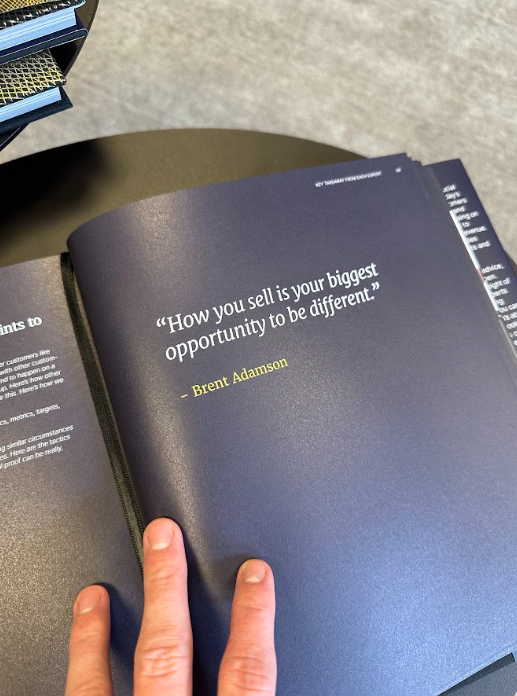Brent is also one of the featured experts in our newly released "The CEO's Playbook to Complex Sales". Here are his top three takeaways from his contribution.
1 / Get your reps to act like consultants
The most successful sales reps challenge customers' assumptions.
They put themselves in the client's shoes, which makes the conversation more probing, with the rep acting more like a consultant on how the company could think about their operation.
"The customer mindset is: I've got this complex business I'm trying to run, so if someone could help me understand it better than I understand it now, that would actually truly be valuable."
2 / The burden of proof is on you, so nail your insights
You can't tell people to think differently about their business unless you show it works. That's known as the burden of proof - and it's on you.
"At the heart of this approach is a commercial insight. Which is an insight that you can ultimately monetise.
You don't want just to make your customers smarter and have them buy from someone else.
So, it's an insight that helps them adopt a course of action they may not have otherwise taken, ultimately leading to them buying your solution. So, it's a monetisable insight."
3 / The four worst words in sales, according to Brent, are "it turns out that"
"It turns out that procurement needs to look this over, and they've got some questions about it."
"It turns out that legal wants to look this over. They've got some issues around GDPR"
What the customer is really saying is: I don't know how to get my own people to freaking decide.
The best way to handle this is to put a framework around decision-making by asking something like:
"In working with other customers like you, we find three people you've got to get involved now because they tend to blow things up later".










